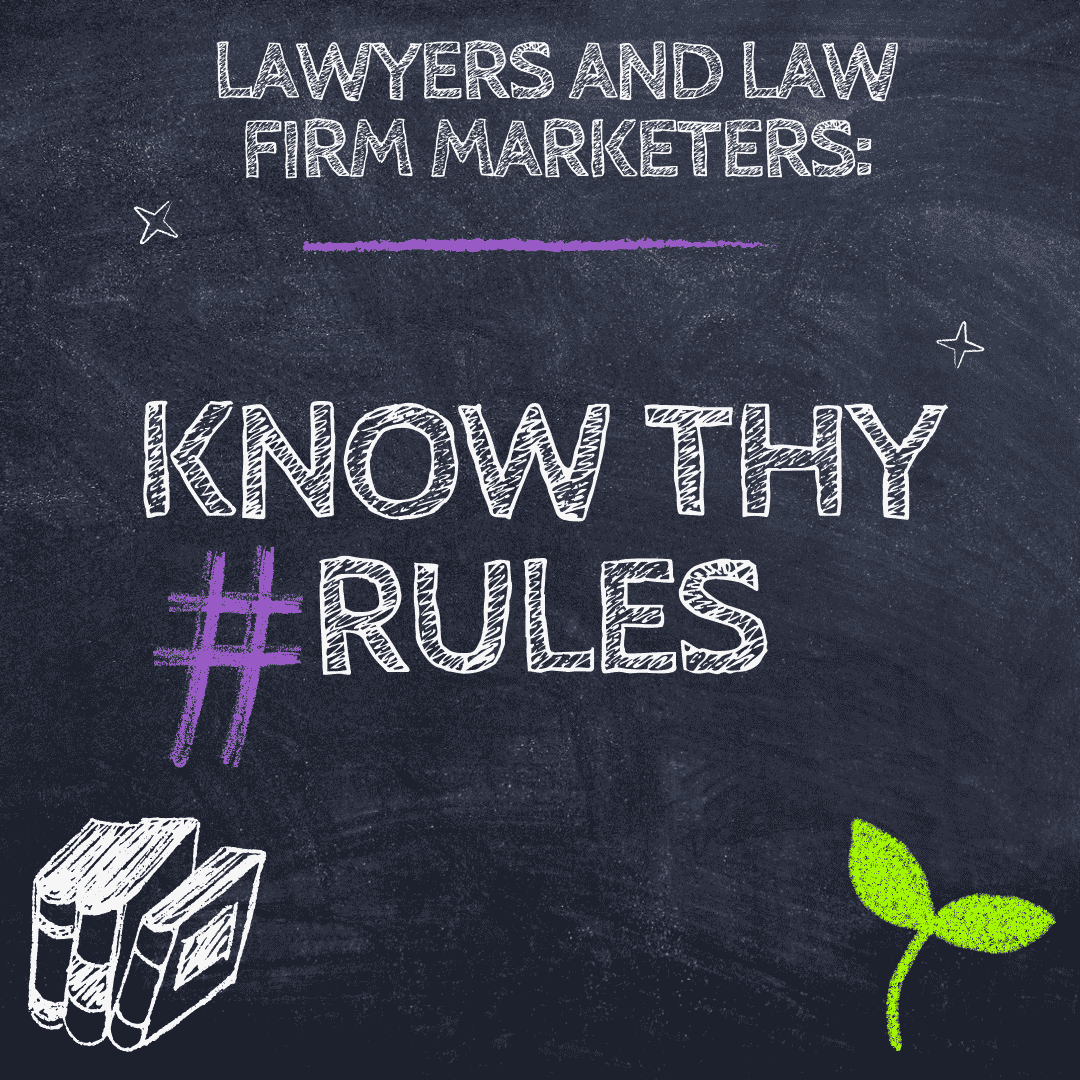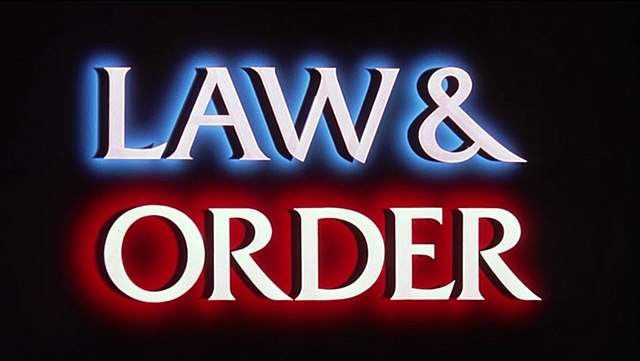LeBron James sells sneakers on Instagram. He promotes his programs and hawks his products on social media. Guess what? So do you. That’s at least one thing you have in common with LJ. The second (or third–we don’t know if you can’t dunk or not!) is that when you and LeBron advertise on social channels, you’re playing by a strict set of rules and regulations specific to your state, region, business size, practice area, and more.
While you might be able to dunk (we just don’t have the proof!), you can’t ust drop a #lawyerlife post and call it a day. Just like athletes need to disclose their endorsements, lawyers need to ensure their social media marketing is compliant with ethical guidelines—because the last thing you want is a foul in the form of an ethics violation.

Just as LeBron has to promote his deals online and abide by #ad rules, your firm’s ad campaigns must follow the ethical guidelines laid out by the ABA and other governing bodies. So let’s make sure your game plan is rock solid—because when it comes to social ads, there’s no room for penalties. Because the last thing you want is to end up in a legal foul play—after all, you’re here to win clients, not penalties!
Penalty Box – Why Ad Compliance Matters
Compliance is essential—but we don’t need to tell attorneys that. Running ads on social media is more than throwing together some ad copy, linking to the website, and hitting “boost.” Social advertising for law firms comes with a minefield of regulations that differ by state, practice area, and platform. If you don’t play by the rules, you risk more than just low engagement rates—your ad could be pulled, your reputation could take a hit, or worse, you could face your own legal troubles. According to a 2023 report by the American Bar Association, over 80% of law firms are using social media to market themselves—stay compliant to avoid getting benched.
Ethics, Reputation, and Consequences
So, what happens if you break the social advertising rules? The fallout can extend far beyond a slap on the wrist or a removed post. Lawyer disciplinary information is often available to the public, meaning your clients—and everyone else—will know if your firm isn’t playing by the book. Because clients are more likely than ever to research before making an inquiry, they’ll be privy to your reputation within the legal community. Negative word of mouth can spread quickly, but upholding legal ethics isn’t just about avoiding penalties—it’s about protecting your firm’s credibility, preserving client trust, and demonstrating a commitment to professional integrity. Stay compliant in all your paid social activities to maintain that trust and your reputation.
Who Can Penalize Law Firms for Non-Compliance?
- State Bar Associations
- State Supreme Courts or other state court systems
- American Bar Association
- The Federal Trade Commission (FTC) for misleading or deceptive ads
- Advertising boards for legal professionals
- Individual social media platforms (removal of advertising privileges)

Legal Guidelines in Online Law Firm Ads
Today’s legal advertising landscape is like a playoff game—high stakes, tight rulebook, and no shortage of upsets and unexpected twists. Like athletes have to respect the whistle, the ref calls, and the boundary lines, lawyers can’t sidestep the legal regulations for social ads. Before accidentally committing a foul, let’s review the rules of engagement.

1. Be Honest
- Your ads should never make false claims—pretty obvious—but they should also avoid deceptive or misleading information, too. Pay attention to your phrasing, your vocabulary and make it clear exactly which practice areas you cover.
- Refrain from guarantees. This rule protects both you and the client from unrealistic expectations and potential disputes down the road. Be transparent about your capabilities, and stay away from promising specific results and outcomes you can’t control.
- Pay particular attention to copy that pairs words like “get,” “obtain,” or “achieve” with “reults.” This is where the lines get blurred.
- Keep an eye out for exaggerations. It’s better to stick to the facts than to sound like a snake oil salesman on social media.
2. Avoid Specific Competence Claims
- Your firm should only advertise for the case types your firm can actually handle. Protect your client trust by sticking to what you do best—and only what you’re qualified to handle. Legal ads that stretch the truth could also get you in hot water with the ABA (Rule 7.2).
- Avoid superlatives and other flashy adjectives when it comes to “expertise.” The legal industry upholds strict regulations about using these terms because a lawyer must be formally accredited in a specific area before claiming expertise in it. Even if you have a lawyer at your firm who specializes in a particular area and is officially credentialed, you should still tread carefully.
- Example: Let’s say one of your partners is certified by the International Association of Privacy Professionals (IAPP) as a Certified Information Privacy Professional/United States (CIPP/US). Great! They’re an accredited expert in privacy law. However, that doesn’t give the entire firm the right to advertise itself as “privacy law experts.”
- Keep it specific to the individual’s credentials or avoid “specialist” language altogether.
- Descriptors to avoid:
- Expert
- Specialist
- Best
- Most affordable/lowest cost
3. Use Disclaimers
- Disclaimers aren’t just random fine print copy—they’re essential, offering your firm an advertising safety net. According to ABA Rule 7.1, firms should include disclaimers to ensure ads don’t mislead the public or set unfair expectations for potential clients.
- Include disclaimers when….
- Presenting results, data, or client wins.
- Outcomes not guaranteed
- Prior results do not guarantee a similar outcome.
- Using actors to portray legal professionals and/or clients
- Actor portrayal
- Actors have been used to portray clients and attorneys in this advertisement
- This depiction does not imply any real-life outcome.
- Presenting results, data, or client wins.
4. Avoid Solicitations
- Legal solicitation is different from advertising. Solicitation refers to the specific targeting of a vulnerable individual or group—usually when they’re vulnerable—to directly offer legal services. This can include face-to-face conversations, phone calls, or other 1:1 communications.
- Stick to public advertising. For example…
- Ad: Hurt? We have your back! Personal Injury Attorneys.
- Solicitation: “Hey, we saw on the ‘gram that you were in a car accident. We can help you with your case.”
5. Respect Jurisdictional Limits
- Lawyers should only run advertisements for and in regions and states in which they are licensed to practice. Not only would it be a violation of ABA Rule 5.5 (unauthorized practice of law) to actually take a case outside of your jurisdictions, it can also damage your local reputation and erode trust with clients—looks a bit shady, no?
- Be responsible and reasonable when geo-targeting ads. Stick to the rivers and the lakes that you’re used to…keep it local!
6. Maintain Confidentiality
- Obvi—attorney-client privilege is one of the core tenets of the profession, so of course lawyers are expected to uphold confidentiality standards when advertising. This duty persists even after the client-lawyer relationship has ended (American Bar Rule 1.6). Just as you’d never reveal specifics about client cases, past or present, respect client privacy and keep the dirty details out of ads.
- Before sharing testimonials or client wins, obtain explicit consent (written, perhaps) from the client to share and avoid disclosing any sensitive or otherwise confidential information. If sharing client data anonymously or under a pseudonym, be extra careful to withhold any revealing information or specific details that could lead back to the client.
Compliance Corner: Social Media Marketing Checklist For Lawyers

- Craft clear, honest copy regarding your services, fees, and practice areas.
- Create a cache of verbiage that fits your firm like a glove and can be used across advertising platforms.
- Clearly identify advertisements with appropriate disclaimers.
- Vet your ad campaigns for signs of solicitation and be mindful of audience interpretation.
- Learn platform-specific advertising guidelines for each social platform you leverage.
Stick to the guidelines when promoting your firm on socials, and you’ll protect your reputation, your ability to advertise, and your client trust.
Ready to convert some leads? Let’s talk advertising.

Hannah Bollman is Nifty’s talented and dynamic Content & Brand Manager. She develops compelling content across blogs, newsletters, social media, and ad campaigns, ensuring alignment with Nifty’s voice and mission. With a background in SEO, content marketing, and stand-up, Hannah brings a unique mix of creativity, strategy, and humor to everything she does. When she’s not shaping Nifty’s brand or growing visibility for legal clients, she’s on a run, on her bike, or enjoying a delicious falafel sammich.
